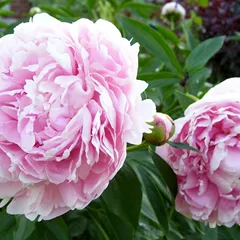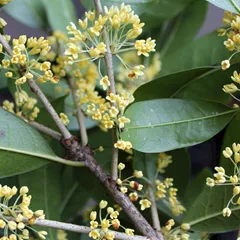Habitual miscarriage according to Chinese Medicine
The information provided here is not a replacement for a doctor. You shouldn't use it for the purpose of self-diagnosing or self-medicating but rather so you can have a more informed discussion with a professional TCM practitioner.
Habitual miscarriage factsheet
Possible causes and remedies:
Full Cold in the Directing and Penetraing Vessels
Symptoms: Infertility Late period Painful period and three other symptoms
Recommended formula: Wen Jing Tang
Dampness and Phlegm in the Uterus
Symptoms: Cold limbs Late period Infertility and eleven other symptoms
Recommended formula: Wen Jing Tang
In Chinese Medicine, habitual miscarriage can be associated with five so-called "patterns of disharmony". Chinese Medicine sees the body as a system, not a sum of isolated parts. A "pattern" is when the system's harmony is disrupted. It is not equivalent to the Western concept of "disease", as a matter of fact here habitual miscarriage can be caused by five different patterns.
To understand whether someone's habitual miscarriage might be caused by a given pattern, one needs to look for signs and symptoms associated with the pattern beyond what one might typically experience from habitual miscarriage alone. For instance when habitual miscarriage is caused by the pattern Full Cold in the Directing and Penetraing Vessels, patients also experience symptoms such as painful period, cold in the lower abdomen, infertility and late period. Similarly, patients with Full Cold in the Directing and Penetraing Vessels typically exhibit deep (Chen), slow (Chi) or tight (Jin) pulses as well as a bluish-purple, pale tongue.
We've listed below a description of the five patterns associated with habitual miscarriage so that you can start to get an understanding of the various possibilities according to Chinese Medicine.
Once identified, patterns are often treated using herbal formulas. Drinking herbal infusions is the most common remedy in Chinese Medicine, together with acupuncture. Here we detail below three formulas that can help treat the various patterns associated with habitual miscarriage, depending on which pattern fits your profile.
The five "patterns of disharmony" associated with habitual miscarriage
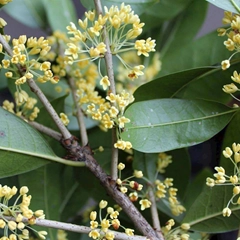
Cinnamon Twigs (Gui Zhi) is the key herb for Wen Jing Tang, a formula used for Full Cold in the Directing and Penetraing Vessels
Full Cold in the Directing and Penetraing Vessels
Pulse type(s): Deep (Chen), Slow (Chi), Tight (Jin)
Tongue color: Bluish-Purple, Pale
Recommended herbal formula: Wen Jing Tang
Symptoms: Infertility Late period Painful period Cold in the lower abdomen Dark clots in menstrual blood Abdominal pain after childbirth
Habitual miscarriage might be due to Full Cold in the Directing and Penetraing Vessels if the condition is paired with typical pattern symptoms such as painful period, cold in the lower abdomen, infertility and late period. Similarly, patients with Full Cold in the Directing and Penetraing Vessels typically exhibit deep (Chen), slow (Chi) or tight (Jin) pulses as well as a bluish-purple, pale tongue.
Read more about Full Cold in the Directing and Penetraing Vessels here

Cinnamon Twigs (Gui Zhi) is the key herb for Wen Jing Tang, a formula used for Dampness and Phlegm in the Uterus
Dampness and Phlegm in the Uterus
Pulse type(s): Choppy (Se), Deep (Chen), Slow (Chi), Wiry (Xian)
Tongue color: Bluish-Purple
Recommended herbal formula: Wen Jing Tang
Symptoms: Cold limbs Late period Infertility Purple lips Painful period Feeling of cold Lochia retention Irregular menstruation Cold feeling in vagina Brown vaginal discharge White vaginal discharge Cold in the lower abdomen Dark clots in menstrual blood Abdominal pain after childbirth
Habitual miscarriage might be due to Dampness and Phlegm in the Uterus if the condition is paired with typical pattern symptoms such as late period, painful period, dark clots in menstrual blood and brown vaginal discharge. Similarly, patients with Dampness and Phlegm in the Uterus typically exhibit choppy (Se), deep (Chen), slow (Chi) or wiry (Xian) pulses as well as a bluish-purple tongue.
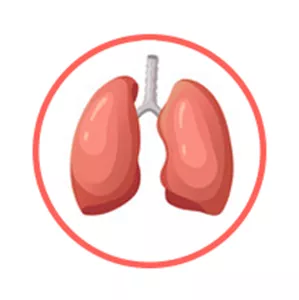
The Lungs is a so-called "Zang" Organ. Learn more about the Lungs in Chinese Medicine
Lung Qi Deficiency
Recommended herbal formula: Ba Zhen Tang
Symptoms: Weak voice Aversion to speak Shortness of breath
Habitual miscarriage might be due to Lung Qi Deficiency if the condition is paired with typical pattern symptoms such as shortness of breath, weak voice and aversion to speak.
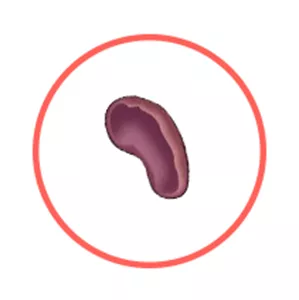
The Spleen is a so-called "Zang" Organ. Learn more about the Spleen in Chinese Medicine
Spleen Qi Deficiency
Recommended herbal formula: Ba Zhen Tang
Symptoms: Weak Limbs Poor appetite
Habitual miscarriage might be due to Spleen Qi Deficiency if the condition is paired with typical pattern symptoms such as poor appetite and weak limbs.

Ginseng (Ren Shen) is the key herb for Ba Zhen Tang, a formula used for Qi and Blood Deficiency
Qi and Blood Deficiency
Recommended herbal formula: Ba Zhen Tang
Symptoms: Vertigo Pale face Pale lips Pale tongue Palpitations
Habitual miscarriage might be due to Qi and Blood Deficiency if the condition is paired with typical pattern symptoms such as palpitations, vertigo, pale face and pale lips.
The three herbal formulas that might help with habitual miscarriage

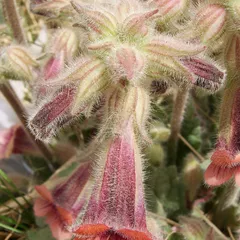

The top herbs in Ba Zhen Tang are Ginseng (Ren Shen), Prepared Rehmannia (Shu Di huang) and Atractylodes Rhizomes (Bai Zhu)
Ba Zhen Tang
Source date: 1326 AD
Number of ingredients: 10 herbs
Key actions: Tonifies and augments Qi. Tonifies and augments Blood.
Why might Ba Zhen Tang help with habitual miscarriage?
Because it is a formula often recommended to help with the patterns Lung Qi Deficiency, Spleen Qi Deficiency and Qi and Blood Deficiency which are sometimes associated with habitual miscarriage. If any of these patterns look like something you might suffer from, this formula might help (although please seek confirmation with a professional practitioner beforehand).
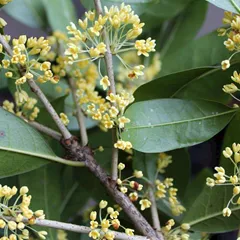

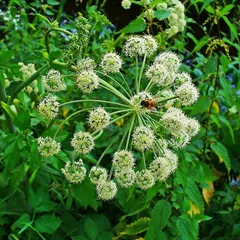
The top herbs in Wen Jing Tang are Cinnamon Twigs (Gui Zhi), Evodia Fruits (Wu Zhu Yu) and Dong Quai (Dang Gui)
Wen Jing Tang
Source date: 220 AD
Number of ingredients: 12 herbs
Key actions: Warms the Uterus and vessels. Nourishes Blood. Dispels Cold. Dispels Blood Stagnation.
Why might Wen Jing Tang help with habitual miscarriage?
Because it is a formula often recommended to help with the patterns Full Cold in the Directing and Penetraing Vessels and Dampness and Phlegm in the Uterus which are sometimes associated with habitual miscarriage. If any of these patterns look like something you might suffer from, this formula might help (although please seek confirmation with a professional practitioner beforehand).
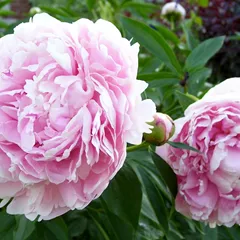


The top herbs in Dang Gui Shao Yao San are White Peony Roots (Bai Shao), Water Plantain (Ze Xie) and Szechuan Lovage Roots (Chuan Xiong)
Dang Gui Shao Yao San
Source date: 220 AD
Number of ingredients: 7 herbs
Key actions: Nourishes the Liver Blood. Spreads the Liver Qi. Strengthens the Spleen. Resolves Dampness.
Why might Dang Gui Shao Yao San help with habitual miscarriage?
Because it is a formula often recommended to help treat , a pattern sometimes associated with habitual miscarriage. If it looks like you might suffer from , this formula might help (although please seek confirmation with a professional practitioner beforehand).

